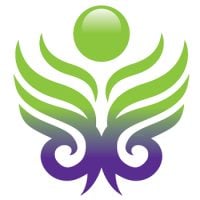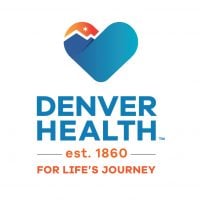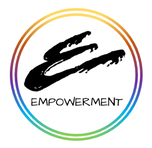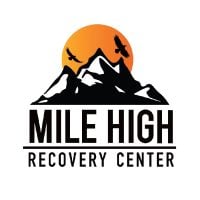
Mile High Behavioral Healthcare
Drug Rehab Center in Denver, Colorado
- Dual Diagnosis
- Drug Addiction
- Alcoholism
Mile High Behavioral Healthcare is an accredited inpatient rehab facility in Denver, providing evidence-based treatment with a focus on individualized care for addiction and substance abuse.
About
Mile High Behavioral Healthcare is an inpatient rehab facility based in Denver, Colorado focusing on addiction and substance abuse. The center provides evidence-based treatment, spearheaded by their team of highly qualified and experienced addiction specialists. Trained in the field of addiction, their staff is dedicated to providing a safe, confidential, and comfortable environment to aid individuals on their journey to recovery.
Mile High Behavioral Healthcare provides a range of services to benefit individuals struggling with addiction or substance abuse. The center offers psychological and physical assessments, individual and group therapies, and an intensive educational program. The facility boasts a specialized alcohol and drug detox program, which is the first step in the recovery process. Patients also benefit from a range of adventure and outdoor activities, which promotes physical and mental well-being.
Mile High Behavioral Healthcare is accredited and licensed with the Colorado Office of Behavioral Health and holds the Joint Commission’s Gold Seal of Approval for its adherence to the highest standards of care. The facility also boasts a host of other awards and accolades such as the American College of Healthcare Executives’ Experienced Healthcare Executive Regents Award, and the American Society of Addiction Medicine’s Clinical Excellence Award. Mile High Behavioral Healthcare sets itself apart from other treatment facilities by providing holistic care that focuses on the individual’s unique needs.
Genders
Ages
Modality
Additional
Conditions and Issues Treated
A person who struggles with addiction and a mental health condition suffers from a dual diagnosis. This means that they have two issues that must be treated. The specific mental health issues that the patient at Mile High Behavioral Healthcare might have include but are not limited to:
- Depression
- Bipolar Disorder
- Anxiety
- PTSD (Post Traumatic Stress Disorder)
The specific addiction issues that the patient might have include but are not limited to:
- Alcoholism
- Drug Addiction (i.e., Cocaine, Meth, and other stimulants, Marijuana, and Ecstasy)
The combination of the two illnesses can be tough to treat. Taking care of one or the other is tough, and taking care of both cannot be done alone. A patient who receives dual diagnosis treatment will be given the best chance at becoming sober.
Levels of Care Offered
This center offers a variety of custom treatment tailored to individual recovery. Currently available are Drug Rehab, Dual-Diagnosis, Intensive Outpatient, Outpatient, with additional therapies available as listed below.
Intensive Outpatient Programs are similar to partial hospitalization, but they don’t require the patient to go home each night.
This means that while they have to attend meetings and receive other types of help at the facility, addicts are allowed to keep their jobs or continue with school without having to miss their classes or work opportunities. This is a great option for those who can’t take time away from their jobs or schedules to attend a treatment program.
During this type of program, the addict will be required to meet with counselors and other types of professionals throughout the day. This will help them stay on track and prevent them from relapsing after they leave the facility.
An outpatient treatment program is set up to help with alcohol or drug addiction or a co-occurring disorder. The treatment must attend the treatment facility for their therapy and other programs but return home each night. The frequency of mandatory attendance decreases after much of the treatment program is complete. The treatment programs are monitored by the treatment facility and case managers who work for a judge or judge’s office. A treatment program may be performed out of a treatment facility, treatment clinic, or treatment center.
The benefits of outpatient treatment programs are many. One of the most beneficial treatment programs is that it allows treatment for clients who cannot afford or may not be able to attend treatment at a treatment facility, treatment center, or treatment clinic full-time. Another benefit of treatment programs is that they reduce crime rates because treatment allows people to treat their addiction.
Therapies & Programs
Individualized Treatment is essential because it gives addicts the ability to participate in a program that meets their unique needs. An addict should work with professionals who understand what they’re going through, especially if the addict is actively using. Finding the right treatment program for an addict is difficult, but it’s even harder without communicating with those who have experience treating your specific situation.
The therapies typically involve all family members, potentially including siblings, children, and parents who play a role in their daily lives. These sessions can be essential because they address past issues that may have affected an addict or alcoholic’s recovery process. They provide support during this time when it is needed most!
A family therapy session, often called a family meeting or intervention, is a necessary process that helps loved ones of addicts see their situation in a new light. It’s also one of the most challenging things families will ever have to do when they’re facing a loved one battling addiction or alcoholism.
Life skills training is beneficial for addicts in recovery because it helps them learn how to take care of themselves and improve their quality of life, which can promote feelings of purpose and motivation.
This works by teaching individuals life-enhancing skills that support positive living, including:
- Healthy lifestyle habits
- Skills to effectively manage stress
- Effective communication skills to help them get their needs met without turning to drugs or alcohol
- Money management and budgeting skills so they can continue to take care of themselves after treatment ends.
Additional Details
Specifics, location, and helpful extra information.
Denver, Colorado 80216 Phone Number(303) 825-8113 Meta DetailsUpdated November 25, 2023
Staff Verified
Patient Reviews
There are no reviews yet. Be the first one to write one.
Denver, Colorado Addiction Information
The Centennial State has slipped to a ranking of 12th in the country for drug abuse. Each year around 24% of the state's population uses illegal drugs while nearly 5% of its population abuses alcohol. Substance-related deaths in Colorado were responsible for 15.12% between 2008 and 2017. Fortunately, Colorado drug and alcohol addiction treatment are available to help a person overcome addiction.
Drug addiction in Denver, Colorado, is quite serious. In 2012, there were 974 drug overdose fatalities in the area, which has likely only gone up in recent years. The city has an estimated 34,000 marijuana users reporting past-month usage in 2016. The most common drugs abused are methamphetamine, heroin, and marijuana. Some popular treatment options include inpatient rehab, outpatient rehab, and detoxification programs.
Treatment in Nearby Cities
- Delta, CO (179.6 mi.)
- Julesburg, CO (166.4 mi.)
- Rocky Ford, CO (137.4 mi.)
- Longmont, CO (27.8 mi.)
- Springfield, CO (208.1 mi.)
Centers near Mile High Behavioral Healthcare



The facility name, logo and brand are the property and registered trademarks of Mile High Behavioral Healthcare, and are being used for identification and informational purposes only. Use of these names, logos and brands shall not imply endorsement. RehabNow.org is not affiliated with or sponsored by Mile High Behavioral Healthcare.




